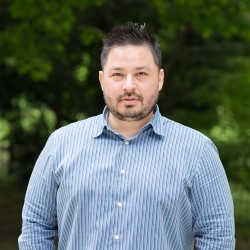David Córdova
Professor of Social Work
Professor Córdova received his Ph.D. from Michigan State University and graduated a Substance Abuse and Mental Health Services Administration Minority Fellow. After completing his National Institutes of Health-funded postdoctoral training at the University of Miami Miller School of Medicine, Professor Córdova joined the faculty at the University of Michigan School of Social Work. His research focuses on Latino health inequities, particularly as it relates to the prevention of substance use and HIV in adolescents. Most recently, Professor Córdova received an early career development award from the Centers for Disease Control and Prevention (Grant# U01PS003316-01), to develop and test the efficacy of a family-based, drug abuse and HIV preventive intervention to be delivered via the internet. He is the recipient of the National Institute on Minority Health and Health Disparities Loan Repayment Program. Professor Córdova enjoys collaborating with students in all aspects of the research process. He is interested in using community-based participatory research, as well as both qualitative and longitudinal methodologies to work toward narrowing and ultimately eliminating health inequities among Latino populations.
Research Interests/Focus
Drug abuse, HIV/STI, prevention, community-based participatory research, adolescents, health disparities
Continuing Education
Contact Information
| Phone | Room | Address | |
|---|---|---|---|
| (734) 763-6201 | [email protected] | 2772 SSWB | University of Michigan School of Social Work 1080 S. University Ann Arbor, MI 48109 |
Education
| Year | Degree | School | |
|---|---|---|---|
| 2010 | PhD | Human Development and Family Studies with Specialization in Couple and Family Therapy | Michigan State University, Lansing |
| 2005 | MA | Marriage and Family Therapy | Alliant International University, San Diego, CA |
| 2002 | BA | Psychology | San Diego State University, San Diego, CA |
| 2000 | AA | Psychology | Southwestern College, Chula Vista, CA |
Websites
| Prevention Research and Health Equity Lab |
| Treatment, Innovation & Dissemination Research Group |
